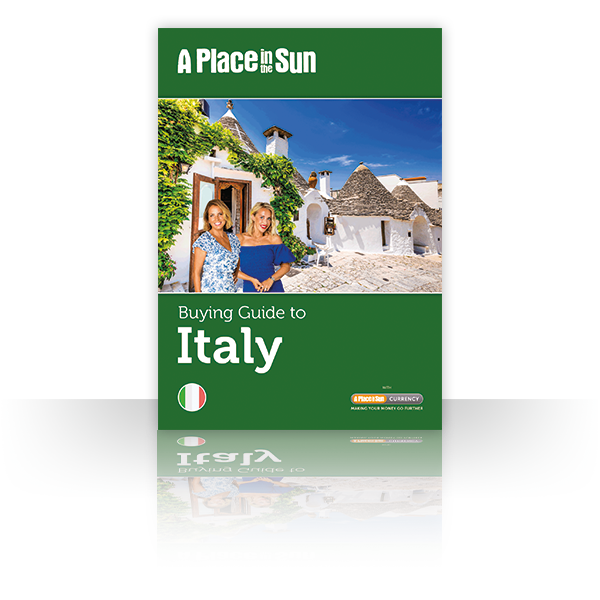-
Find your place in the sun
- Home
-
Property Search
- Property Search
-
Property in Spain
- Property in Spain
- Almeria
- Costa Blanca
- Costa del Sol
- Costa Brava
- Costa de la Luz
-
Costa Tropical
- Costa Tropical
- La Herradura
- Almuñécar
- Salobreña
- Motril
- Murcia
- Valencia
- Inland Andalucia
-
Canary Islands
- Canary Islands
- Tenerife
- Fuerteventura
- Lanzarote
- Gran Canaria
- Balearic Islands
- All Areas
- Property in France
-
Property in Portugal
- Property in Portugal
- Algarve
- Albufeira
- Lagos
- Lisbon Coast
- Silver Coast
- All Areas
- Property in Italy
-
Property in Greece
- Property in Greece
- Aegean Islands
- Corfu
- Crete
- Halkidiki
- Ionian Islands
- All Areas
- Property in Florida
- Property in Cyprus
- Property in Turkey
- Search all countries
- New Developments
- Find an agent in...
- Most Popular Properties
-
-
Help & Guides
- Help & Guides
- How to Buy
- Area Guides
- Free Guide Download
- Professional Services
- Currency
- Mortgages
- Insurance
-
Relocation
- Relocation
-
Moving to Spain
- Moving to Spain
- Buying property in Spain
- Living in Spain
- Retiring to Spain
- How to move to Spain
-
Moving to France
- Moving to France
- Buying property in France
- Living in France
- Retiring to France
-
Moving to Portugal
- Moving to Portugal
- Buying property in Portugal
- Living in Portugal
- Retiring to Portugal
-
Moving to Italy
- Moving to Italy
- Buying property in Italy
- Living in Italy
- Retiring to Italy
-
Moving to Cyprus
- Moving to Cyprus
- Buying property in Cyprus
- Living in Cyprus
- Retiring to Cyprus
- Moving to Malta
- Find a Lawyer
- Viewing Trips Guide
- Articles
- Webinars
- New Developments
- Live Events
-
TV Show
- TV Show
- Episodes
- Presenters
- Apply
- Advertise with us
-
- Sign up / sign in
- Currency
- Find an agent
- Advertise with us
Buying property in Italy
 So, you've decided that Italy is the place for you! In order to prepare for the move to Italy, you need to make sure you have done your research ahead of signing on the dotted line.
So, you've decided that Italy is the place for you! In order to prepare for the move to Italy, you need to make sure you have done your research ahead of signing on the dotted line.
We've put together information to help you navigate the steps you will need to take on your journey to buying a property in Italy, find out more below.
How to buy a property in Italy
To help you on the way to buying your dream property in Italy, we've compiled the information you need to get closer to making the dream of owning an Italian property a reality.
Purchase process
Learn more about the steps you'll take on your way to purchasing a home in Italy.
Find out everything you need to know about the buying process.
Finding a lawyer in Italy
Before you find a property you would like to buy, you'll need to find a lawyer who can act on your behalf throughout the purchase process.
Learn more about finding a lawyer in Italy.
Working with an estate agent in Italy
Connecting with an Italian estate agent will allow you to discover the best properties in your desired location whilst staying within your budget.
Learn more about working with an estate agent.
Purchase costs
When buying a home in Italy you'll need to account for administrative, registration and legal costs.
Learn more about these costs here.
Opening a bank account in Italy
You will need an Italian bank account to purchase your property in Italy.
Find out more about the process of opening a bank account in Italy here.
Costs of ownership
Before you make an offer on a property in Italy, you need to carefully research how much it will cost you to run and maintain it.
Here's where you can learn about the different costs you'll have to consider.
Getting a mortgage
Learn more about the application procedure, as well as the financial criteria you'll need to meet to buy a property with a mortgage.
Read more about Italian mortgages.
Building surveys
Do I need to get a building survey done on a property in Italy?
Check out our links below for more Relocation information
How do I buy property in Italy as a foreigner?
Foreigners can legally buy property in Italy, including non-EU nationals. Buyers from the UK, US, and most European countries face no restrictions due to reciprocity agreements. You’ll need an Italian tax code (Codice Fiscale), and it’s advisable to open a local bank account for the transaction.
The process involves working with a notary, and many buyers also hire a bilingual lawyer to ensure proper due diligence. EU citizens may find the process more streamlined, while non-EU buyers could face extra financial checks. Overall, it’s a well-regulated but paperwork-heavy system that rewards professional support.
How much does property in Italy typically cost?
Property prices in Italy vary widely depending on region, condition, and type. Homes in rural areas or lesser-known towns – particularly in the south – can be found for under €100,000, especially if renovations are needed.
Coastal hotspots like Liguria or the Amalfi Coast, or city centres such as Rome, Milan, or Florence, often see prices from €200,000 upwards, with luxury homes exceeding €1 million. Budgeting 7–10% extra for legal fees, taxes, and notary costs is advised. Buyers should also be aware that second homes are taxed at higher rates than primary residences.
What are the steps to buying a house in Italy?
The Italian property buying process is structured but can differ from the UK or other countries. It typically includes:
- Property Search & Offer – You find a property and submit a formal offer through your estate agent.
- Preliminary Agreement (Compromesso) – This legally binding contract outlines the terms. A deposit of 10–30% is paid.
- Due Diligence – Your lawyer or notary checks land registry entries, debts, zoning, and planning permissions.
- Final Sale (Rogito Notarile) – The final deed is signed in front of a notary. The remaining funds are paid, and ownership is registered. Engaging a bilingual legal advisor can streamline the process and prevent misunderstandings.
If you're looking for more detailed information on buying property in Italy, read our free buying guide here.
Do I need a visa to buy a home in Italy?
No, you don’t need a visa or residency to buy property in Italy. Foreigners can purchase property while on a tourist visit or from abroad. However, owning property does not grant you the right to live in Italy permanently.
If you intend to stay for more than 90 days in any 180-day period – and you’re not an EU citizen (or are married to one) – you’ll need a long-stay visa. Options include elective residency (for retirees), work visas, or self-sufficiency visas. Buying property can support a visa application, but it doesn’t guarantee one. There is also an investor visa (golden visa) and new digital nomad visa.
Are there taxes and fees when buying property in Italy?
Yes, buying property in Italy involves several taxes and fees. These typically include:
- Registration tax – 2% of cadastral value for primary residences, or 9% for second homes
- Notary fees – Around 1–2.5% of the property price
- Estate agent fees – Usually ~3%, split between buyer and seller
- Legal fees – Optional but recommended, ~1–2% of purchase price
If buying a new-build, VAT (IVA) applies instead of registration tax—usually 4% for primary homes or 10% for second homes. Ongoing costs like IMU (municipal tax) and maintenance fees also apply, especially for second homes or holiday lets.
Can I buy a renovation project or €1 home in Italy?
Yes, Italy’s €1 home schemes and renovation projects are open to foreign buyers. These properties are often located in small towns that are offering symbolic prices to encourage repopulation. However, buyers must typically:
- Commit to renovating the property within 1–3 years
- Use local contractors and meet building regulations
- Pay a refundable deposit, usually between €2,000 and €5,000
While upfront costs are low, renovation can be extensive. These projects suit buyers with a flexible timeline and vision for restoration. It’s crucial to conduct thorough surveys and secure legal advice before committing.
Can I still buy property in Italy after Brexit?
Yes, UK citizens can still buy property in Italy after Brexit. Ownership rules haven’t changed – UK nationals can purchase homes, land, or holiday properties. However, UK buyers are now subject to non-EU residency rules, meaning longer stays (over 90 days in any 180-day period) may require a visa. Property rights remain intact, but legal advice is highly recommended to navigate post-Brexit tax, residency, and inheritance considerations. If you plan renovations, consider hiring a local geometra (surveyor) to advise on permits and costs.
For more information on buying property in Italy, read our free buying guide here.
Is buying property in Italy a good investment?
Buying property in Italy can be a strong investment – both financially and in terms of lifestyle. Compared to many Western European countries, Italy offers relatively affordable prices, especially in rural or southern regions. Popular areas like Tuscany, Lake Como, and Puglia provide strong rental potential and long-term value. Beyond the financial side, Italy appeals for its climate, healthcare, cultural heritage, and food. For some buyers, especially retirees or remote workers, it’s more than an investment – it’s a long-term lifestyle move.
